Remember the Kids: Easing the Adjustment of Divorce for Children
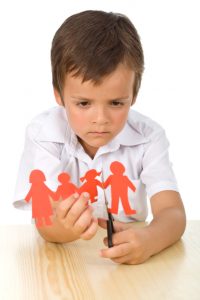 In 1967, in order to study the relationship between stress and physical health, researchers Thomas Holmes and Richard Rahe examined medical records of more than 5,000 patients. In order to determine whether stressful life events could cause illness, they developed a stress scale or “social readjustment scale” which assigned numerical scores of 1-100 to stressful life events based on how life-altering or consuming the stressor proved to be for the patient. Preceded only by death of a spouse (ranked at the highest possible score of 100), divorce was found to be the second most stressful life event with a score of 73. Following closely, in the third spot, comes marital separation (with a score of 65) and marriage itself with a score of 50. While anyone who has ever gone through a divorce doesn’t need a scale to tell them how stressful divorce is, some may need reminding that divorce not only affects the two separated individuals but also those close to them, especially if the couple undergoing a divorce happen to have children.
In 1967, in order to study the relationship between stress and physical health, researchers Thomas Holmes and Richard Rahe examined medical records of more than 5,000 patients. In order to determine whether stressful life events could cause illness, they developed a stress scale or “social readjustment scale” which assigned numerical scores of 1-100 to stressful life events based on how life-altering or consuming the stressor proved to be for the patient. Preceded only by death of a spouse (ranked at the highest possible score of 100), divorce was found to be the second most stressful life event with a score of 73. Following closely, in the third spot, comes marital separation (with a score of 65) and marriage itself with a score of 50. While anyone who has ever gone through a divorce doesn’t need a scale to tell them how stressful divorce is, some may need reminding that divorce not only affects the two separated individuals but also those close to them, especially if the couple undergoing a divorce happen to have children.
According to a scale developed as an off-shoot to the social readjustment scale that measures stressful life events for non-adults, divorce of parents was given a score of 90. Compared to divorce on the original scale developed by Rahe and Holmes, divorce is significantly more stressful for children of the married couple than the spouses themselves. This can be logically deduced by any observational individual given that children have less coping strategies, sense-making abilities, and comprehension due to less life experience; however, it may be easy for the parents, in the whirlwind of paperwork and arguments, to overlook this fact and self-indulge in their own worries and stress.
For parents to completely absorb the emotional toll divorce takes on children, it’s helpful to look at statistics surrounding children of divorced parents. According to a comprehensive analysis conducted by Paul Amato and Bruce Keith in 1991, 25 percent of children whose parents divorce have long-term social, emotional, and psychological problems that span into adulthood versus 10 percent of children raised by non-divorced parents. The Royal College of Psychologists identify a number of emotions likely to be experienced by children of divorced parents including (but not limited to): a sense of loss, anger towards one of both parents, guilt over having facilitated the separation, feeling torn between the two parents, and insecurity.
While many of these emotions are internalized and may go unnoticed by the parents, the externalized behaviors that result of these emotions can often be observed. Regressive behaviors, such as clinginess, bedwetting, and nightmares are typical of younger children whose parents are separating. However, while younger children often become more dependent and vocalize their need for attention, older children and teenagers often fall on the other end of the spectrum, emphasizing their independence and engaging in reckless or dangerous behavior. Studies have shown that children of divorce are more likely to engage earlier in sexual behavior, alcohol and substance misuse, as well as lower academic achievement. All of these behaviors, be them from younger or older children, are usually acknowledged by the parents (and even punished) without regard to their causes or careful consideration on how to remedy these problems.
When going through a divorce, you are likely to experience extreme emotions of guilt. Divorcing partners often think to themselves “I could have done more” or “Maybe I’m to blame for the failure of my marriage.” It is not unlikely that your children could have the same concerns, especially if you don’t address these issues with them. While children are a stressful additional component to any relationship, vocalizing this stress in front of them, or even blaming any component of parenting for the failure of your marriage, will have a devastating effect on your children.
It is important to let your children know that reasons for divorce lie outside of their control, that it is an issue between you and your partner. Internalized blame can often lead to childhood depression and antisocial tendencies that can carry out through adulthood. So although you may be feeling guilty about the dissolution of your marriage, remember to never displace any of that guilt onto your child.
While the study by Amato and Keith indicated that 25 percent of children with divorced parents develop long-term social and psychological problems, it’s important to recognize that there’s a whole 75 percent that do not. So what makes these affected children different from the rest? While no exact combination of factors or specific events can be pinpointed, well-researched and practiced methods have shown to help children efficiently adjust to the divorce of their parents. As highlighted repeatedly by various medical journals, books, and popular parenting guides, here are some helpful tips to help ease your child’s adjustment through the process of separation and divorce:
– Be honest. While telling the truth may seem difficult, lies or major omissions may confuse and frustrate the child down the road. Understanding the reasons behind the divorce may save the child from greater hurt if they were to find out later. However, make sure you don’t divulge too much information; make your explanation child-appropriate. It’s important not to look to your child for comfort in a manner that puts unfair strains on them. It is easy for a child to feel they must take care of a parent when he or she is feeling lonely, hopeless, or upset. Make sure your child doesn’t feel responsible for the separation or the emotions you feel as a result.
– Show tact. Don’t try to punish your partner by lowering them in the eyes of your children. Keep the problems between you and your partner exactly that: between you and your partner… leave the kids out of it. The more calm, resilient, and kind you can be to your partner even in divorce, the more resilient your children can be in coping with the separation and feeling that they are still cared for by both their parents.
– Communicate with your child. Give them outlets to express their feelings about the divorce and don’t be afraid to ask questions. It may be harder to get them to divulge feelings or opinions but doing so will let you know how to make it an easier adjustment for them.
– Don’t place blame. If you need to, plan and rehearse conversations together that you will have with your children regarding the divorce. Make sure they aren’t pressured to choose a side.
In the chaos and stress surrounding a divorce, it’s often hard for parents to slow down and look at the implications for their children. Studies have repeatedly shown short-and long-term psychological effects experienced by children of divorce. However, divorce doesn’t guarantee prolonged hardship for children; there are strategies and resources available to those looking to ease the transitions experienced by families undergoing a divorce. However, the first step is always to recognize that the parents are not the only ones stressed by the divorce, and children often have an even harder time adjusting to the changes.
Tags: child development, children, communication, good parenting, kids, marriage, parent child communication, parenting, parenting advice, parenting skills, parents, relationship advice, relationship problems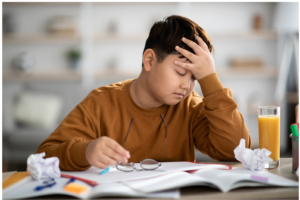

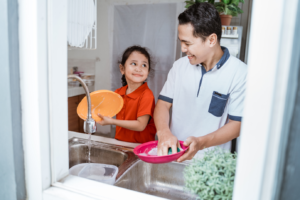

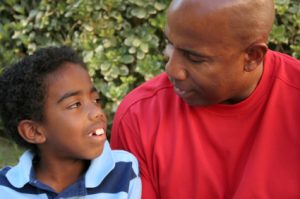
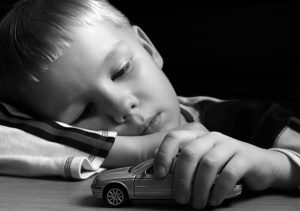
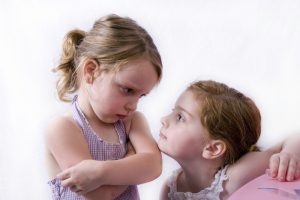
Divorce really affect children in many ways. Nice content and informative.